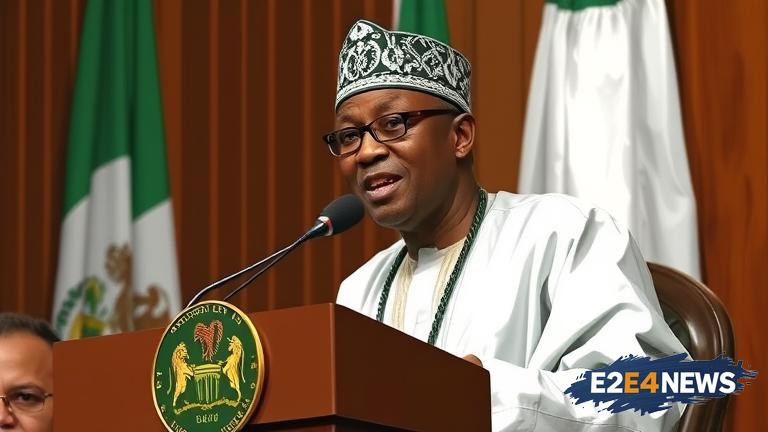The Nigerian government is currently exploring the possibility of amending the country’s constitution to introduce a single-term presidency. This move has sparked intense debate among politicians, scholars, and the general public, with some arguing that it would help to reduce the risk of political instability and promote democratic consolidation. Others, however, are skeptical about the potential benefits of such a system, citing concerns about the potential for a lack of accountability and the concentration of power. The proposal for a single-term presidency is not new in Nigeria, as it has been discussed in various forms over the years. However, the current administration’s decision to revisit the issue has brought it back into the spotlight. Proponents of the single-term presidency argue that it would help to prevent the kind of political polarization and conflict that often accompanies presidential elections in Nigeria. They also argue that it would give the president the freedom to make tough decisions without worrying about the consequences of re-election. On the other hand, opponents of the proposal argue that it would lead to a lack of accountability, as the president would not be beholden to the electorate. They also argue that it would concentrate power in the hands of the president, potentially leading to authoritarianism. The Nigerian constitution currently provides for a maximum of two four-year terms for the president. However, the proposal for a single-term presidency would require a significant amendment to the constitution, which would need to be approved by a two-thirds majority in both the Senate and the House of Representatives. The debate over the single-term presidency has also raised questions about the role of the legislature in the amendment process. Some have argued that the legislature should play a more active role in shaping the proposal, while others have argued that the executive branch should take the lead. The issue has also sparked debate about the potential impact on the country’s political parties. Some have argued that a single-term presidency would lead to a more stable and predictable political environment, which would be beneficial for political parties. Others, however, have argued that it would lead to a lack of competition and innovation, as parties would not have to worry about re-election. The Nigerian public is also divided on the issue, with some supporting the proposal and others opposing it. A recent survey found that a majority of Nigerians support the idea of a single-term presidency, but there are still significant concerns about the potential implications. The proposal has also sparked debate about the potential impact on the country’s economy. Some have argued that a single-term presidency would lead to a more stable and predictable economic environment, which would be beneficial for investors. Others, however, have argued that it would lead to a lack of continuity and stability, as a new president would take office every four years. The issue has also raised questions about the potential impact on the country’s international relations. Some have argued that a single-term presidency would lead to a more stable and predictable foreign policy environment, which would be beneficial for Nigeria’s international partners. Others, however, have argued that it would lead to a lack of continuity and stability, as a new president would take office every four years. In conclusion, the proposal for a single-term presidency in Nigeria is a complex and contentious issue that has sparked intense debate among politicians, scholars, and the general public. While some argue that it would help to reduce the risk of political instability and promote democratic consolidation, others are skeptical about the potential benefits of such a system. As the debate continues, it is clear that the proposal will require careful consideration and negotiation among the various stakeholders involved. The potential implications of a single-term presidency are far-reaching and complex, and it is essential that all perspectives are taken into account. Ultimately, the decision on whether to adopt a single-term presidency will depend on the ability of the Nigerian government to build consensus and navigate the complex political landscape. The proposal has the potential to shape the future of Nigerian politics and governance, and it is essential that it is approached with caution and careful consideration.
